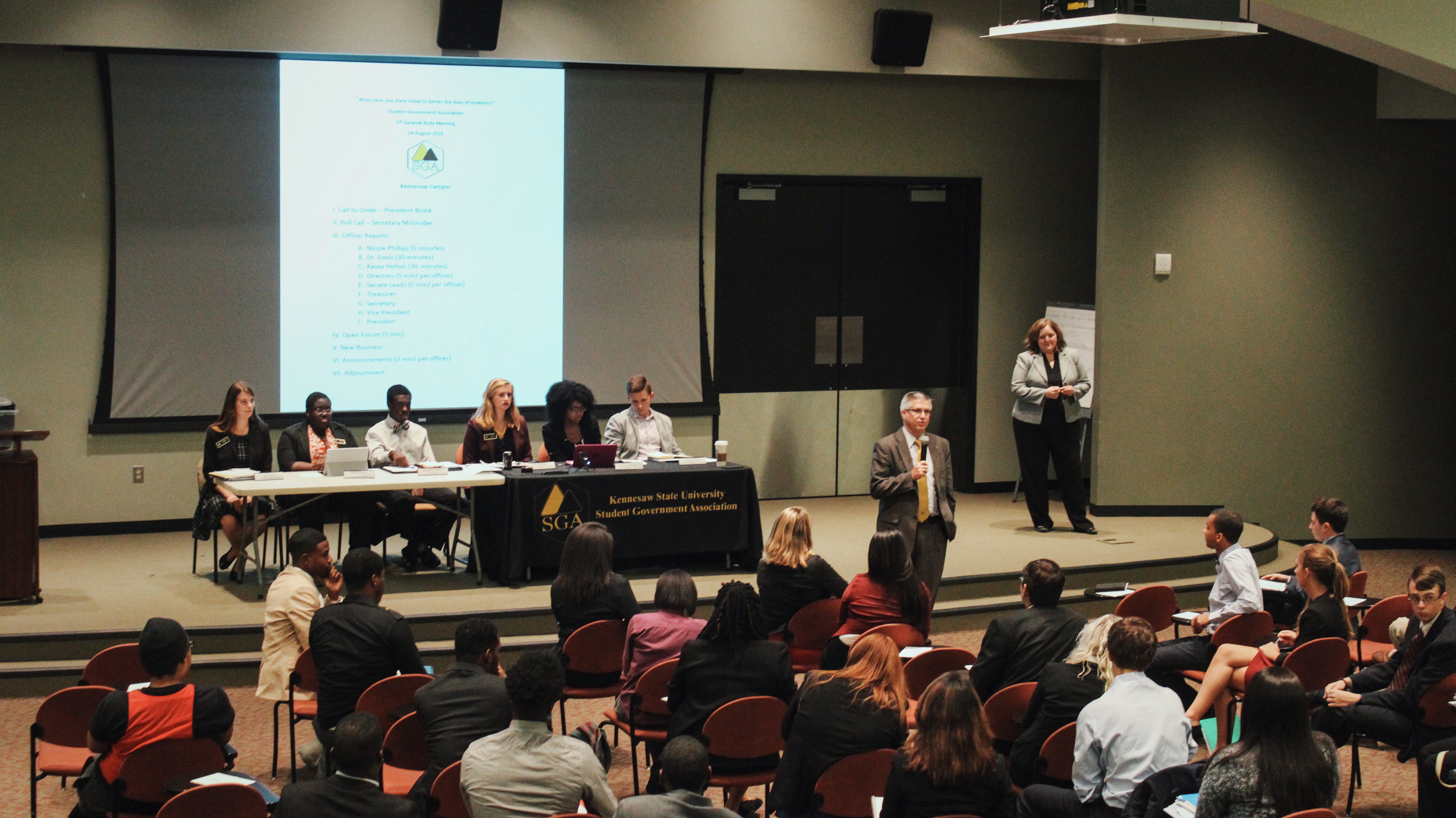Kennesaw State was recently awarded two grants, totaling over $500,000, to improve minority participation and success in STEM degree programs.
According to a university press release, the initial grant is part of a larger $2.5 million in grants over the next five years. The grant awards will be used to advance the universities’ commitment to a University of Georgia-led project, the Peach State Louis Stokes Alliance for Minority Participation.
“The NSF LSAMP funding has been and will continue to be instrumental in providing not only participation support and student travel funds for various conferences but also a major factor in facilitating undergraduate research in STEM as well as outreach with the STEM community for our underrepresented minority students,” said Marietta PSLSAMP leader and mechanical engineering professor David Veazie.
Melanie Griffin, director of special programs and associate biology professor, leads the program on the Kennesaw Campus.
PSLSAMP works with universities across Georgia to increase minority participation in undergraduate STEM degrees. KSU offers two separate PSLSAMP programs, one for each campus. The Marietta campus has been part of the program since 2005 as an original member. In 2011, the Kennesaw campus became a part of the alliance as well, according to the KSU PSLSAMP website. There are more than 50 students enrolled in the program between both campuses, according to the KSU news release.
“With a student focus in mind, each institution provides services that assist underrepresented minorities with the transition from high school to college, integrate them socially and academically into the university environment, and engage them in research and summer internship opportunities,” the KSU LSAMP website said.
The grants come after minority enrollment at KSU reached over half of the total population at the university for the Fall 2021 semester, according to KSU’s 2021-2022 fact book. In 2021, KSU was recognized by Diverse: Issues in Higher Education for awarding degrees to minority students, ranking No. 14 nationwide among 2,500 institutions.
Previous successes of students in the program include sophomore Angel Vasquez being awarded the Barry M. Goldwater Scholarship in March of this year. On the Marietta campus, Sumit Chakravarty has been working on research for retinal analysis for identifying diseases.
To qualify for the program, students must meet a list of academic qualifications, plan to major in STEM and be a citizen or permanent resident. Students must also identify as African American, Native American, Hispanic American, Alaskan Native or Native Pacific Islander, according to NSF guidelines on underrepresented groups in the field.
Pew Research revealed that minority communities are underrepresented in STEM careers, with a workforce comprised of only 9% African American, 8% Hispanic or Latino, and 13% Asian-American workers. Studies done by Pew have emphasized that increasing diversity in STEM careers requires action at the educational level and on the behalf of universities to increase diversity in the future.
This representation in this career field is emphasized as STEM careers are expected to have 821,300 new job openings over the next ten years, according to Smart Asset.

